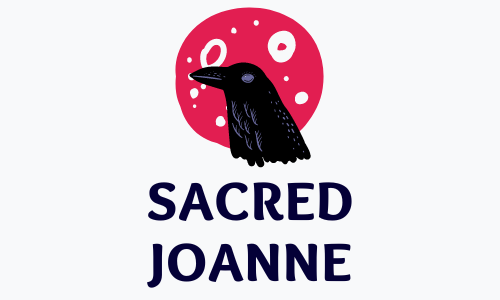ISTP Personality Type
Get ready to dive into the world of ISTPs (Introverted, Sensing, Thinking, and Perceiving)- the observant, hands-on doers within the Myers-Briggs Type Indicator’s 16 personality types.
With an uncanny understanding of mechanics, these practical problem solvers are masters at dealing with emergencies, moving swiftly as they respond to the demands of their environment.
Think of them as fiercely independent trailblazers, soaking up the physical and sensory delights life has to offer.
They’re powered by alone time, driven by facts over abstract ideas, and make decisions logically.
They love trying new things and could bore easily with routine. Fondly known as the ‘Craftsperson’, their innate knack for handling tools is impressive.
So, if you’re ready, let’s explore the intriguing world of the ISTP personality.
ISTP Characteristics
ISTPs, the logical problem solvers, are incredibly driven by understanding how things work.
Their precision and attention to detail, coupled with a knack for swift crisis management, make them the reliable realists of the bunch.
But it’s not all mechanics and systems. They yearn for human connections too, although they might struggle with emotional cues at times.
Stressors for ISTPs include a lack of solitude, feeling controlled, and chaotic emotional environments.
They crave accuracy, cherish their independence, and prefer less restrictive rules. But watch out – they could unintentionally come across as tactless, not meaning to cause any emotional harm.
These thrill-seekers are all about embracing new experiences – think fast-paced hobbies like motorcycling or bungee jumping.
When it comes to decision-making, they’re the champions of objectivity, putting aside personal biases.
ISTPs are generally reserved but easygoing, conversing freely in environments they’re comfortable with.
Though they might seem emotionally detached, they’re simply less attuned to emotional states, sometimes perceived as cold or insensitive.
Contrary to popular belief, they’re not devoid of strong emotions, but instead are impressively level-headed, keeping their cool during crises while maintaining their objective outlook.
ISTP Strengths
- Practical Problem-Solvers
- Adventurous Risk-Takers
- Cool Under Pressure
- Detail-Oriented Realists
- Independence Seekers
ISTP Weaknesses
- Emotionally Detached
- Can Appear Tactless
- Dislike Micromanagement
- Quick to Boredom
- Struggle with Intimacy
ISTP Cognitive Functions
Dominant – Introverted Thinking (Ti)
When it comes to the ISTP, their dominant cognitive function is Introverted Thinking (Ti), leading them to spend a significant amount of time processing information internally.
Though this can make them come off as quiet, they are actually making calculated observations and rational decisions.
Their logic-driven approach means they’re good at maintaining objectivity, focusing on practicalities and useful solutions, while often sidelining emotions.
Because of this, getting to know them can feel a bit tricky as they’re more action and results-oriented rather than emotionally expressive.
The Ti function, given its priority, essentially becomes the service center for all other functions.
It’s the superstar of in-depth logical analysis, busy solving problems and finding answers, even priding itself on detaching from situations for maximum objectivity.
ISTPs with Ti are masters at dialing down emotions when they’re figuring things out, whether it’s meeting new people, starting new activities, or presenting logical arguments.
It’s all about keeping the emotional noise to a minimum for a more objective standpoint.
Auxiliary – Extraverted Sensing (Se)
Living in the moment is the ISTP’s motto, thanks to their auxiliary cognitive function, Extraverted Sensing (Se).
They prefer to tackle things one day at a time, focusing on the present rather than future plans or possibilities.
With a strong sense of logic, they love learning how things work, often dissecting things out of sheer curiosity.
Abstract and theoretical information might intrigue them, but they’re more interested if there’s a practical application involved.
The Se function is the ISTP’s main information gateway, helping them make sense of the world around them through their senses.
It’s all about real-time experiences and tangible facts, preferring the concrete over purely theoretical concepts.
So, you’ll usually find ISTPs engaged in hands-on activities, truly embodying the essence of “here and now.”
Tertiary – Introverted Intuition (Ni)
The ISTP’s tertiary cognitive function, Introverted Intuition (Ni), works largely behind the scenes.
While they might not naturally gravitate towards abstract ideas, they’re adept at taking these concepts and translating them into practical actions or solutions.
It’s the Ni that often leads to those spontaneous “gut feelings” ISTPs might experience during decision-making, and the lightbulb “aha” moments of sudden insights.
Ni serves as the ISTP’s problem-solving ace, drawing from various areas in their brain to find solutions or identify patterns in gathered information.
It can even help predict future outcomes, skipping several steps ahead.
This abstract internal world, led by Ti and supported by Ni, can involve a fair amount of intuitive leaps, making it challenging for ISTPs to fully articulate how they arrived at a certain conclusion.
They’re doing mental gymnastics, even if they can’t always explain how they stuck the landing.
Inferior – Extraverted Feeling (Fe)
ISTP’s inferior cognitive function, Extraverted Feeling (Fe), typically operates backstage, becoming more noticeable during stressful times.
ISTPs are often prone to ignoring their feelings until they reach a boiling point, leading to occasional outbursts of emotions that might seem out of character or inappropriate.
Highly charged situations might elicit unexpected emotional reactions from these typically cool-headed individuals.
Fe also brings out the humanitarian side of ISTPs.
It fuels their desire to use their logical prowess and creative problem-solving skills for the betterment of others and for improving the world.
However, being the last function, Fe isn’t as strong as the others, meaning ISTPs might start off life less tuned into their feelings and less equipped to handle emotional matters compared to other personality types.
It’s a journey of emotional growth and understanding for these logical trailblazers.
ISTPs in Relationships
Romantic Relationships
ISTPs are introverted souls who love their independence and have a fondness for new experiences, while strict routines are not their cup of tea.
Being controlled or tied down in relationships isn’t their style, and commitments can be a bit of a hurdle.
However, when a relationship piques their interest, they’re all in, putting considerable effort into making it work.
Just bear in mind that they might not be the most expressive when it comes to emotions.
Romantic Relationship Tips for ISTPs
- Embrace Independence
- Express Emotions
- Avoid Routine
- Value Commitment
- Foster Interests
Friendships
While ISTPs might come across as somewhat elusive or awkward due to their reserved nature and tendency to keep their opinions to themselves, they form solid friendships around shared hobbies.
They find joy in engaging with friends in these activities, and although they’re great listeners, they may not always readily share their thoughts.
Getting to know an ISTP is a journey, not an instant reveal.
Friendship Tips for ISTPs
- Share Opinions
- Seek Shared Hobbies
- Embrace Listening
- Overcome Awkwardness
- Value Longevity
Parenthood
As parents, ISTPs are typically laid-back and nonjudgmental, preferring actions over long conversations.
They’re keen observers, always in tune with their surroundings and taking care of immediate needs in a quiet, unobtrusive manner.
While they might not be the most conventional when it comes to expressing emotions or opening up to their children, they connect through shared activities or practical problem-solving.
Plus, their knack for hands-on tasks and intuitive understanding of mechanics could make them the go-to fixer in the household!
Parenthood Tips for ISTPs
- Encourage Openness
- Connect Through Activity
- Balance Privacy
- Share Mechanical Skills
- Promote Independence
Career Paths & Learning Styles for ISTPs
Career Paths
- Outdoor Professions
- Independent Roles
- Hands-On Jobs
- Flexibility-Oriented Careers
- Technical Problem-Solving
Learning Styles
- Practical Applications
- Independent Learning
- Hands-On Experience
- Logical Reasoning
- Real-World Scenarios
ISTPs thrive in careers that offer autonomy, challenge, and a dash of action. They’re natural problem solvers with a knack for applying technical knowledge to real-world problems.
ISTPs have a penchant for fixing things and crafting innovative solutions, and they love opportunities to get active and even travel.
The typical 9-5 desk job doesn’t sit well with them. They’d much rather be on their feet, responding flexibly to arising situations. Too many rules or micro-management can cramp their style.
They thrive when they can chart their own course and devise their own solutions.
Careers where they can work alone, using their logical reasoning skills and hands-on experience, often appeal to them, especially if they offer a practical, real-world impact.
Famous ISTPs You Might Know
History & Artists
- Miyamoto Musashi
- Steve Jobs
- Magnus Carlsen
- Miles Davis
- Stanley Kubrick
- Clint Eastwood
- Tom Cruise
- Michael Jordan
- Ashton Kutcher
- David Blaine
Characters
- Levi Ackerman
- Rue Bennett
- Katniss Everdeen
- Shrek
- Sherlock Holmes
- Hua Mulan
- Arya Stark
- Ron Swanson
- Saitama
- John Wick































